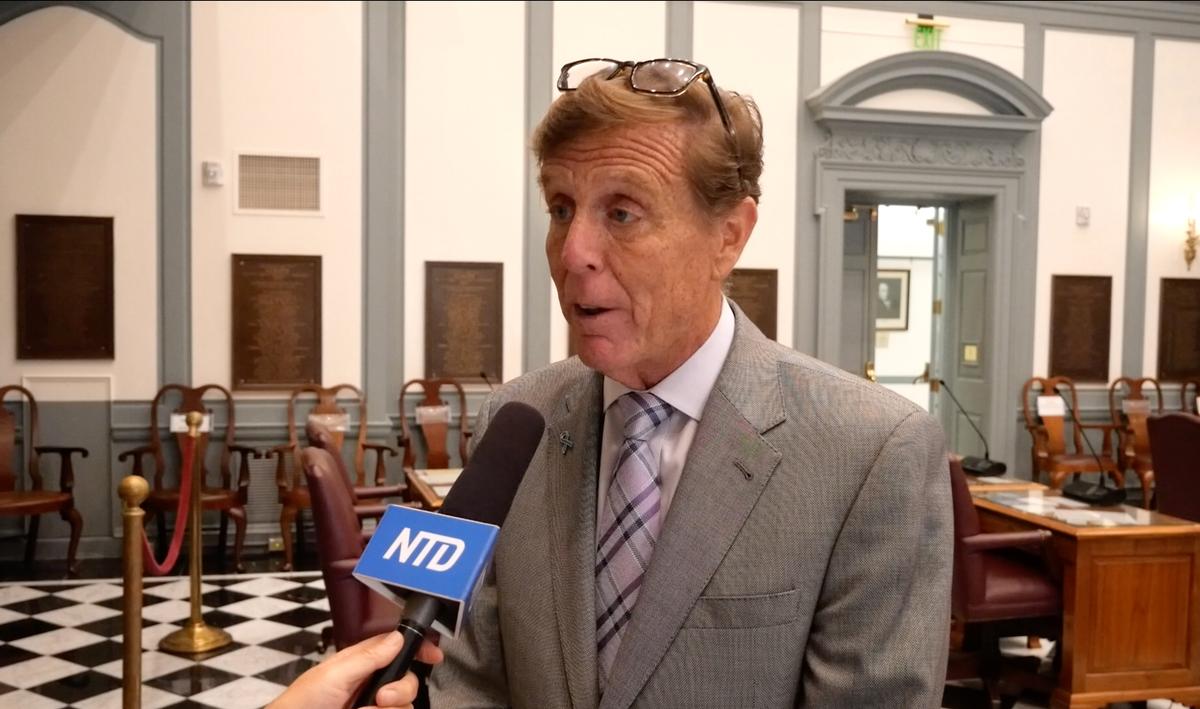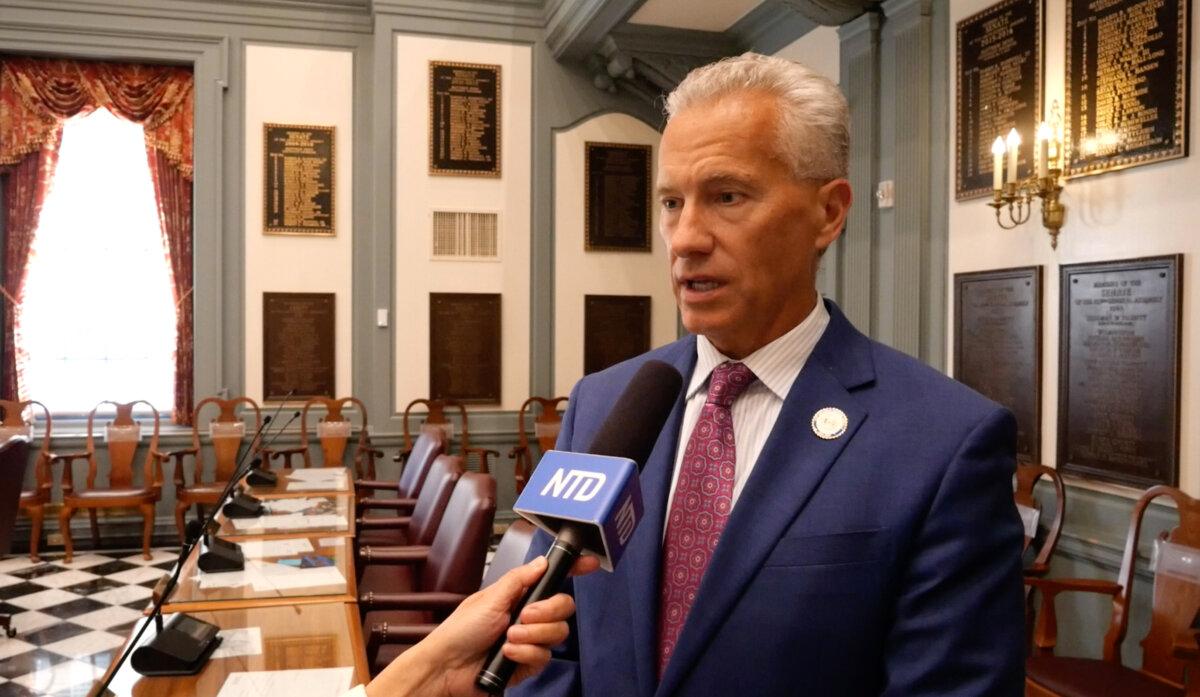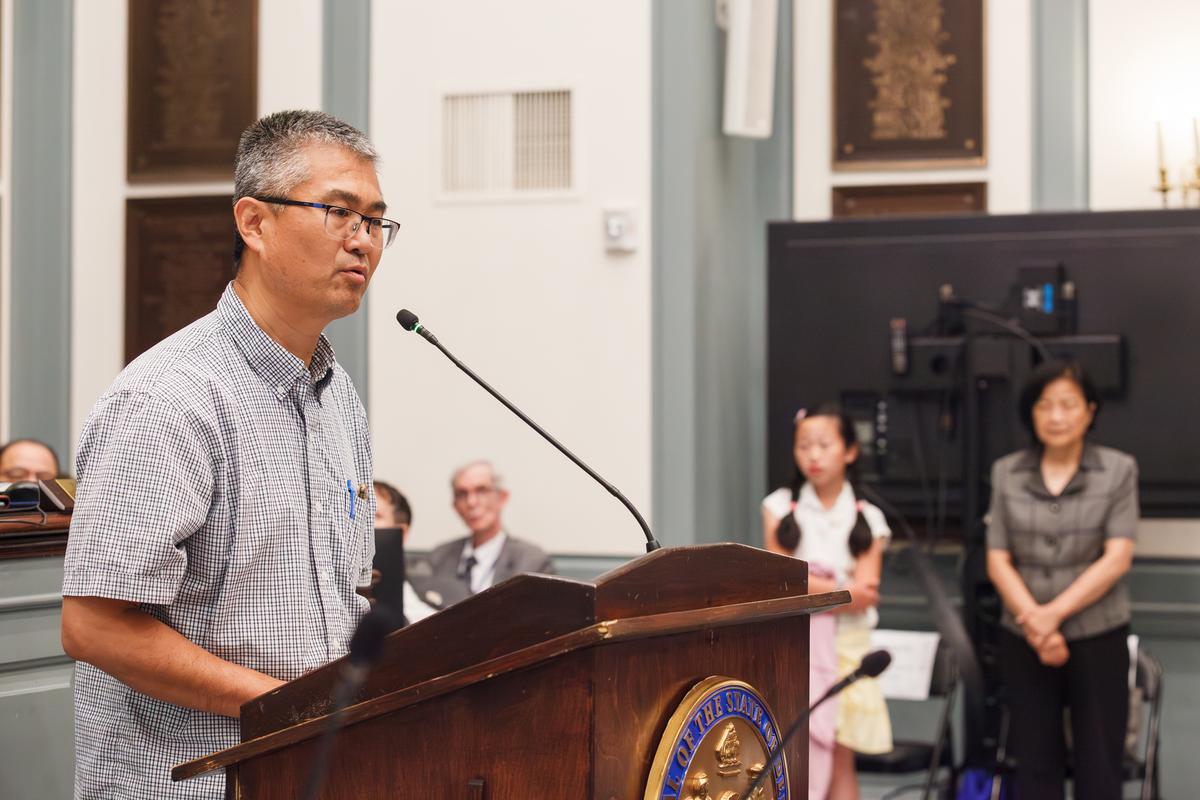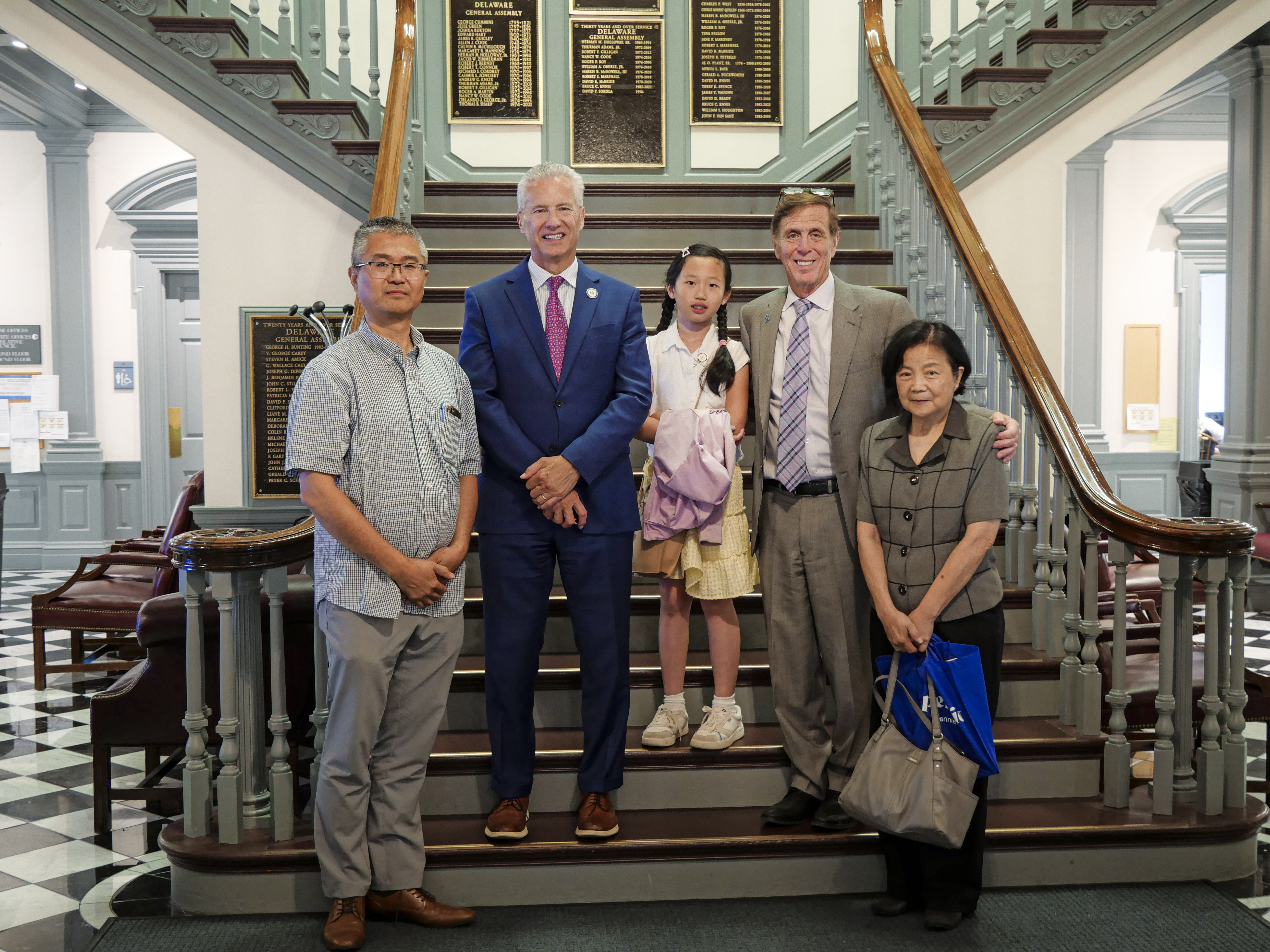DOVER, Del.—On June 20, the Delaware House of Representatives unanimously passed a resolution condemning the Chinese regime’s lucrative industry of forced organ harvesting. The resolution aims to raise awareness about the risks associated with traveling to China for expedited organ transplants.
House Concurrent Resolution 143 (HCR143), calls on lawmakers to encourage the Delaware medical community to educate people about forced organ harvesting that occurs in China, to help prevent Delaware residents from unwittingly becoming involved in China’s state-run industry to murder prisoners of conscience for the purpose of harvesting and selling organs. The victims are primarily Falun Gong practitioners, as well as Tibetan Buddhists, House Church Christians, and members of the Uyghur Muslim ethnic minority.
The primary sponsor of the resolution is Delaware state Rep. Michael Ramone, who is also the House Minority leader and a gubernatorial candidate. Additional sponsorship comes from Sen. Gerald Hocker and seven co-sponsors from both the Democrat and Republican parties, including state Sen. David Lawson, Sen. Brian Pettyjohn, Rep. Paul Baumbach, Rep. Richard Collins, Rep. Jeff Hilovsky, Rep. Michael Smith, and Rep. Lyndon Yearick.
Mr. Ramone told The Epoch Times that it took a lot of time and persistence to get the resolution introduced.
“Mainly because there was a lack of knowledge and a lack of education. And once we did a better job of talking to each representative and each on the Republican and the Democrat side, it seemed like we’ve got ... a full house that voted for the resolution, which I think brings attention to the educational needs of us teaching people in our country when they’re thinking of going to China for an organ because of the speed at which they can get it, why that’s happening,” he said.

Delaware state Rep. Michael Romane speaks to NTD on June 20, 2024. (Andrew Li/The Epoch Times)
Mr. Ramone emphasized the need for education to discourage involvement in unethical practices, urging individuals to seek alternative means of medical care that do not condone such abuses. He expressed deep concern over the Chinese Communist Party (CCP)’s policies impacting millions of lives, emphasizing the critical need for global awareness and advocacy.
“If we shut down everybody in our country from that means of getting organ transplants, the demand will very much change and hopefully will save a lot of lives,” Mr. Ramone said. “Because no one believes that we should ever be doing anything to take a life to potentially sell pieces to save another life. That’s just not right.”
During the legislative session, state Rep. Madinah Wilson-Anton, who previously studied Asian studies at the University of Delaware and now serves as adjunct faculty, expressed gratitude for the resolution. She said she never heard about the forced organ harvesting tragedy in China.
“I really appreciate the opportunity for us all to learn about this and spread awareness and make sure that our loved ones and community members [are] not traveling for these types of organ transplants,” Ms. Wilson-Anton said. She highlighted the importance of spreading awareness about such forced organ transplants, even though it’s happening internationally.
Mr. Yearick co-sponsored the resolution, condemning the CCP practice of forced organ harvesting as horrific and not wanting to be complicit.
“Where I can understand the need for someone who is wishing to have a better health care outcome for their loved one, however, how they’re going about it is just tragic. It’s horrifying, the horror of the harvesting of organs that’s going on in this world and the market that exists for,” Mr. Yearick told The Epoch Times.

Delaware state Rep. Lyndon Yearick speaks to NTD on June 20, 2024. (Andrew Li/The Epoch Times)
Mr. Yearick said he heard about forced organ harvesting several years ago. He wants greater awareness of the tragic situation.
“The practice going on is just a human tragedy that we should speak up for whether it’s human trafficking, organ trafficking, sex trafficking, the word ‘trafficking’ brings with it some very serious complications and ramifications,” he said.
“It’s diminishing the value of life. And it’s diminishing the value of an individual, that human element, that we should speak up for, and speak against any type of trafficking, because it’s just terrific for the individual.”
Frank Cui, an engineer and a Falun Gong practitioner, expressed gratitude on behalf of Delaware practitioners for the resolution’s passage. He stressed the resolution’s role in raising awareness and preventing unwitting involvement in organ transplant abuses.
“This resolution is very important as it helps to spread awareness of this transplant abuse in China, and protect Delawareans from becoming accomplices of this crime unwittingly. This awareness itself is a means of stopping the abuse and a step in the right direction in avoiding the complicity,” Mr. Cui said.

Falun Gong practitioner Frank Cui speaks at a Delaware House of Representatives legislative session on June 20, 2024. (Laura Highberger/House staff photographer)
“To eradicate Falun Gong while making profit, the CCP has been killing healthy Falun Gong practitioners for organs. As a result, China boasts the shortest organ waiting time in the world and attracts so-called organ tourists from other countries.”
Falun Gong, also known as Falun Dafa, is a mind and body practice guided by the principles of truthfulness, compassion, and forbearance. The practice has brought health and peace to millions of practitioners around the world. Tragically, in 1999, the Chinese Communist Party (CCP) launched a brutal persecution campaign against Falun Gong.
The resolution also acknowledges a 2015 Freedom House report that found Falun Gong practitioners made up most of the Chinese regime’s organ harvesting victims, and references an investigative report from 2016 that estimated China was performing 60,000 to 90,000 transplants a year, which disputes the CCP’ s claim of 10,000 per year.
Three states, Texas, Utah, and Idaho, have enacted laws making clear that their residents should take no part in forced organ harvesting.
Andrew Li contributed to this report.








